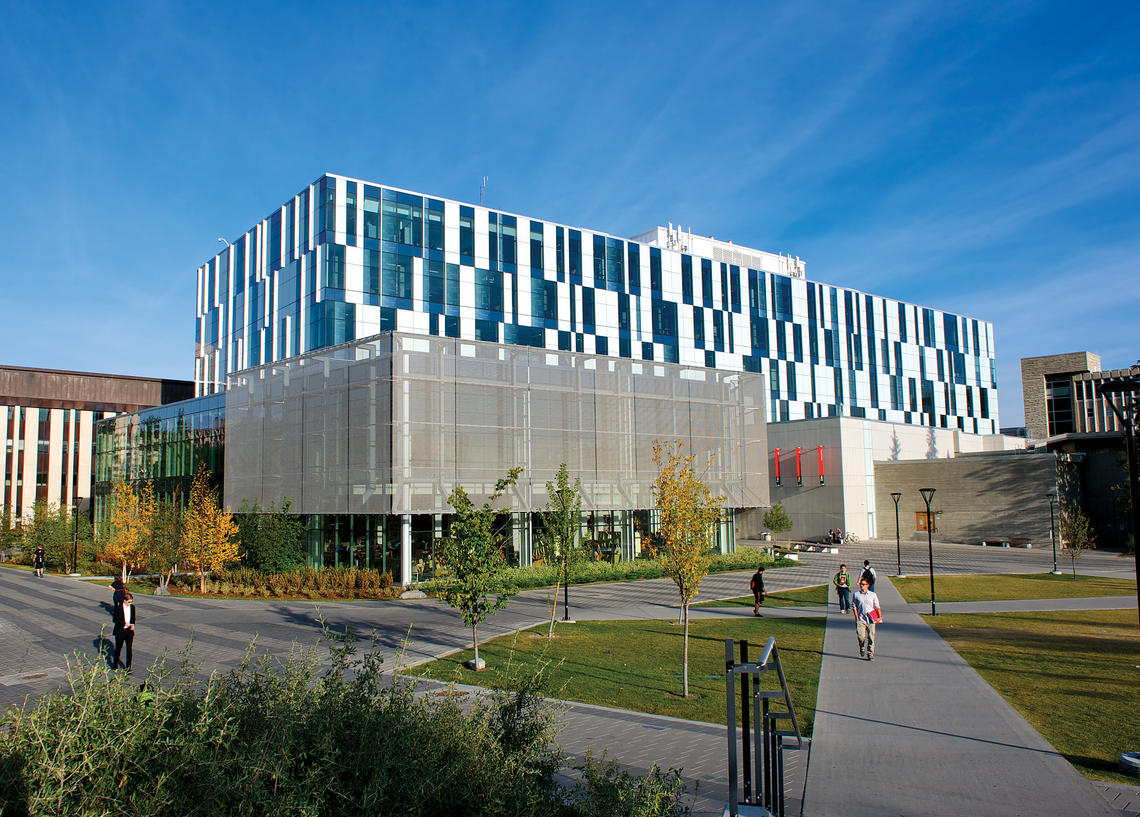June 5, 2015
University of Calgary explores new role of libraries in academic research

The Taylor Family Digital Library at the University of Calgary.
Dave Brown
The Andrew W. Mellon Foundation, based in New York City, has awarded a planning grant to the University of Calgary. The Foundation works to strengthen scholarship by supporting university research and promoting the role of libraries and other cultural institutions. Libraries and Cultural Resources will use the funds from the Foundation's Scholarly Communications Program to explore innovative ways for academic libraries to support multidisciplinary research.
By offering access to innovative work spaces, unique collections and the latest technology, libraries are playing an increasingly central role in fueling the research engine.
"In pursuit of our goal to be one of Canada’s top research universities, it is essential that the University of Calgary play a leading role in the discovery of new ways in which academic libraries can contribute to world-class research," said Vice-President (Research) Ed McCauley.
The project, led by Vice-Provost and University Librarian Tom Hickerson, will gather ideas from University of Calgary faculty members and international experts during workshops in the Taylor Family Digital Library. The findings, shared through published papers and presentations at academic conferences, will guide the designers and planners of future library projects around the world.
"As research becomes more multidisciplinary, the planning of modern libraries becomes more complex," explained Hickerson, who was instrumental in the design of the Taylor Family Digital Library, which is known as an innovative and experience-rich academic library. "Whether we are building distinctive collections, implementing new technologies or designing collaborative work spaces, we will increasingly support interdisciplinary 'research clusters' that integrate expertise from a number of specializations."
Dr. Donald J. Waters, senior program officer at The Andrew W. Mellon Foundation, emphasized the Foundation's interest in investigating evolving models of collaborative research that take advantage of digital tools and methods. “Examining the role in these models of next-generation libraries that are well-equipped and expertly staffed is especially important, and the University of Calgary is well positioned to contribute to this exploration.”
The study will focus on three research clusters that are part of the University of Calgary's Strategic Research Plan. Two of these, Smart Cities and Arctic Change, are important aspects within the Human Dynamics in a Changing World research theme. Visual Analytics is a research platform which looks at the capture, analysis and visualization of data to create meaning and to support problem-solving and decision making.
Involved in the project design on behalf of the University of Calgary were: Anne Katzenberg, associate vice-president (research); Nancy Pollock-Ellwand, dean of the Faculty of Environmental Design; Maribeth Murray, executive director of the Arctic Institute of North America; and Sheelagh Carpendale, Canada Research Chair and director of the Innovations in Visualization Laboratory.
